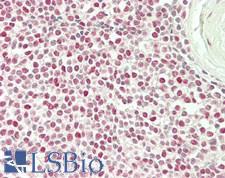Login
Registration enables users to use special features of this website, such as past
order histories, retained contact details for faster checkout, review submissions, and special promotions.
order histories, retained contact details for faster checkout, review submissions, and special promotions.
Forgot password?
Registration enables users to use special features of this website, such as past
order histories, retained contact details for faster checkout, review submissions, and special promotions.
order histories, retained contact details for faster checkout, review submissions, and special promotions.
Quick Order
Products
Antibodies
ELISA and Assay Kits
Research Areas
Infectious Disease
Resources
Purchasing
Reference Material
Contact Us
Location
Corporate Headquarters
Vector Laboratories, Inc.
6737 Mowry Ave
Newark, CA 94560
United States
Telephone Numbers
Customer Service: (800) 227-6666 / (650) 697-3600
Contact Us
Additional Contact Details
Login
Registration enables users to use special features of this website, such as past
order histories, retained contact details for faster checkout, review submissions, and special promotions.
order histories, retained contact details for faster checkout, review submissions, and special promotions.
Forgot password?
Registration enables users to use special features of this website, such as past
order histories, retained contact details for faster checkout, review submissions, and special promotions.
order histories, retained contact details for faster checkout, review submissions, and special promotions.
Quick Order
PathPlusTM BMI1 / PCGF4 Antibodies
BMI1 (Polycomb complex protein BMI-1, PCGF4, RNF51) is a polycomb ring finger protein that modulates p16INK4A and p14ARF/p19 expression and is considered an oncogene. Knockout studies in mice as well as various cancer studies show that it is important for central nervous system development, stem cell renewal and negative regulation of aging in neurons, proper neurological function, skeletal patterning and hematopoiesis. It also functions in DNA repair. It is highly upregulated in mantle cell lymphomas and also overexpressed in breast, colorectal, skin, prostate, ovarian and hematological carcinomas. In a number of cancers including glioblastoma multiforme, inhibition of BMI1 results in reduced proliferation of tumor cells. Loss of BMI1 expression is also thought to play a role in sporadic Alzheimer’s disease pathogenesis. In immunohistochemistry, BMI1 has nuclear positivity in all tissues throughout the body.
References: Genes Dev. 19 (12): 1432–7, PMID: 15964994; J. Neurosci. 29 (2): 529–42, PMID: 19144853; Journal of Molecular Medicine. 83 (8): 596–600, PMID: 15976916; The Journal of Neuroscience. 29 (28): 8884–96, PMID: 19605626; Cell Rep. 2018 May 29;23(9):2653-2666; Biochim Biophys Acta. 2008 Nov;1782(11):642-8, PMID: 18817867
1 PathPlusTM Antibody

☰ Filters
Products
Antibodies
(1)
Type
Primary
(1)
Target
BMI1 / PCGF4
(1)
Reactivity
Human
(1)
Mouse
(1)
Application
IHC
(1)
IHC-P
(1)
WB
(1)
IP
(1)
Host
rabbit
(1)
Product Group
PathPlus Neuro
(1)
Isotype
IgG
(1)
Clonality
polyclonal pc
(1)
Format
Unconjugated
(1)
Epitope
aa276-326
(1)
Publications
No
(1)

Neuroscience
BMI1 / PCGF4 Rabbit anti-Human Polyclonal (aa276-326) Antibody
Mouse, Human
IHC, IHC-P, IP, WB
Unconjugated
50 µl/$460
Viewing 1-1
of 1
product results











